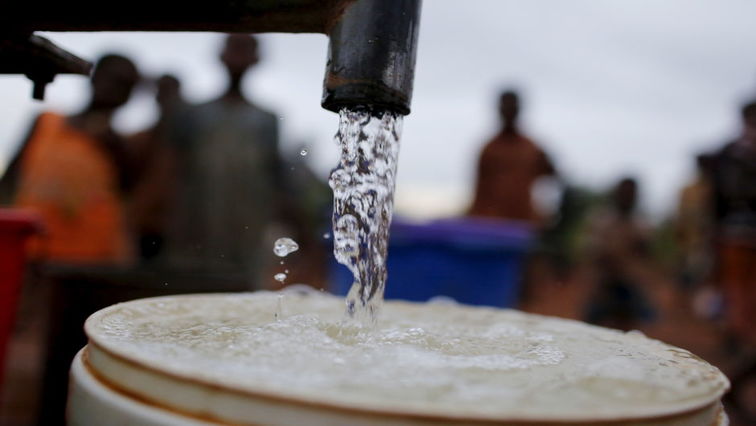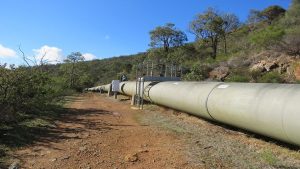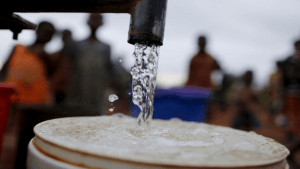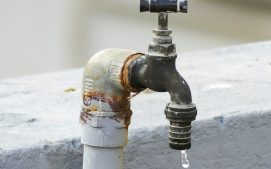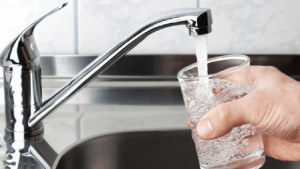Water continues to be a major challenge in rural parts of the Eastern Cape, and communities still fetch water from rivers, which they share with animals.
This despite the announcement made in 2014 by former president Jacob Zuma of the multi-billion rand Umzimvubu Water Catchment Project. The project, which entails the construction of Ntabelanga, Laleni and Mbokazi dams is meant to supply water to thousands of households in OR Tambo, Joe Gqabi and Alfred Nzo districts.
But it is yet to get off the ground.
Access to clean water is a basic human right, but some communities in rural Eastern Cape do not enjoy it.
About 24% of households in the province use unimproved water sources and these include most rural communities, who still fetch water from rivers. These residents say they use this water for cooking, drinking and laundry.
“Sometimes our stomach becomes runny because the water is dirty. People wash their cars here and the water then flows to the river. That’s what causes the runny stomachs,” says a resident.
“The water is stinky. When you do your laundry with this water your clothes smell bad. Sometimes we buy fabric softeners when we don’t have body sprays so that we can smell better. We also don’t have other means but to drink it as smelly as it is,” says another resident.
Water crisis persists in rural parts of the Eastern Cape:
Umzimvubu Water Project
News of the Umzimvubu Water Project brought hope. However six years later, the R15 billion project still just exists on paper.
Traditional leaders in areas earmarked for the three dams, want to exert pressure on government to move on the project.
“They told us about the dam and raised our hopes. They even conducted interviews and our children were hoping for employment. We don’t know what government wants us to do. We want this dam because our children don’t have jobs. That’s why they are on drugs. They even abuse the elderly. If they build this dam everyone will benefit,” says a leader.
“We as the Laleni community are so disappointed because all the promises that were made to us regarding the construction of the Laleni dam are in vain,” says another leader.
The water project was set to create thousands of jobs. About 6 000 households in the OR Tambo, Alfred Nzo and Joe Gqabi District stood to benefit from clean water supply. The water would have also been used for irrigation.
OR Tambo Farmers Association Chairperson, Bandile Gqwetha, says they are eagerly waiting for the project to resume.
“We still have a hope that the government is going to erect the dams and also the communities around the dams, the manner in which they are handling the matter we’ve got hope,” says Gqwetha.
The Umzimvubu Water Project, has been in the pipeline since 1962. Many believe the delay is hindering rural and economic development.
“The delay in the construction of the dam has contributed to the perpetuation of the legacy of apartheid and poverty of our people in rural areas, which is an entropogenic complex emergency which means that if the dam could be constructed, that entropogenic complex emergency could be done away with,” says Bongani Ndamase, Chairperson of Centre for Economic Participation.
Construction is due to start at Ntabelanga – which will be the main dam. Department of Water and Sanitation Spokesperson, Sputnik Ratau, says they will need financial assistance from the private sector to complete the dam.
“In as far as Ntabelanga is concerned, we have begun with the advance infrastructure and the advance infrastructure implies the building of access roads the building of the site camps and ensuring that there’s electricity and water at the site camps and ensuring that there’s equipment on site. But due to the lockdown COVID-19 response we had to move equipment and locate it at Mthatha dam but this will be relocated to the site once we received the construction approval so that we can go ahead with the rest of the advance infrastructure,” says Ratau.
The Umzimvubu Water Project can potentially boost government’s Sustainable Development Goals. One of the dams will also assist with generating power for locals.
The Laleni Dam, which will be built along the Titsa River is a multi-purpose water project which will assist in hydro-electric power, household use and irrigation schemes.
Water Crisis | Nelson Mandela Bay Municipality declares Day Zero


